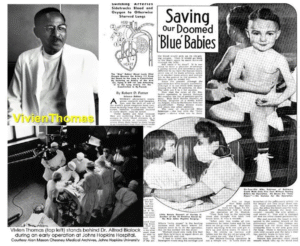The Quiet Ultimatum
During the recent China visit, tensions simmered between Xi Jinping and General Min Aung Hlaing. While the general has remained silent about the trip, reports have surfaced that Xi urged him to step down after the elections—quietly, in the manner of Than Shwe. The idea: once the elections conclude, power would be transferred to a new government formed by parliament, and Min Aung Hlaing would retreat into the shadows, protected by laws passed in his favor. This echoes the precedent set by Thein Sein, who secured legal immunity before stepping down.
But Xi is reportedly displeased. He disapproves of the prolonged delay in holding elections and is uncomfortable with Min Aung Hlaing’s monopolization of power. With the general now wielding more influence than Than Shwe ever did, Xi is said to be pressuring him to uphold the 2008 Constitution, keep silent, and relinquish control.
Min Aung Hlaing, however, has other plans. He envisions holding elections under pressure, then abolishing the very constitution that legitimized his rule. A new charter would be drafted by elected representatives, ethnic armed organizations, and civil society groups. During the decade-long drafting process, he would remain in power as a “caretaker government,” effectively controlling the military, the legislature, and the executive.
This arrangement would allow him to retain the presidency without relinquishing his role as Commander-in-Chief. He is even willing to give Xi authority to revive controversial projects like Myitsone, even could deepen mining in Pharkant, and expand infrastructure links such as the Kyaukphyu-Kunming railway and highway if wish even willing to allow double with elevated extra.
Cracks in the Armor
If Xi wish Zadetgyi, CoCo Islands or all other remaining islands, Okay. Xi Jinping would be granted full license to pursue his ambitions.
From Xi’s perspective, Min Aung Hlaing is past his prime—retirement age, tainted hands, and waning influence within the military. His authority now rests on Planes, gasoline and ammunitions given by Xi. In Xi’s eyes, the general is no longer the obedient subordinate he once was. He’s become a liability. The plan now appears to be to sideline him and elevate younger, more pliable figures. Only then can China present a clean face to the world when pushing forward with projects like Myitsone.
But if the 2008 Constitution is scrapped, the legal protections it provides to the old guard—Than Shwe, Maung Aye, Khin Nyunt, Shwe Mann, Thein Sein—will vanish. That could trigger a political earthquake. Khin Nyunt, in particular, has a long list of atrocities under his belt. Without the Constitution, none of them can claim they were merely following orders. The same applies to the rest of the old elite.
Thus, the current political landscape is shaped by three camps: Xi Jinping, Min Aung Hlaing, and those protected by the 2008 Constitution. Each group has its own interests, and behind them lie complex networks of influence and self-preservation.
So, what happens to Min Aung Hlaing after the election? Will he simply wait it out? Or has he already made his moves in advance? The dissolution of the NLD party and the leaked Aye Maung’s negotiations weren’t part of Xi’s plot. They were the general’s own preemptive strikes.
The Final Gambit
Min Aung Hlaing’s first move appears to be a performance—pretending to push for elections while quietly dragging out the timeline from within the system. If that fails, we may begin to hear of elected figures slipping in the shower or choking on water—metaphors for sudden political accidents. It’s likely that some people have already begun contemplating such outcomes. Some senior figures from UMFCCI are reportedly citing phantom illnesses as excuses to exit the scene.
Meanwhile, Xi Jinping no longer appears with the same confident face. The fallout from Trump’s schemes has taken its toll. Reports suggest that Xi, facing domestic pressure, had to abandon his Western suit during the September parade and revert to the old Mao-style uniform—a symbolic retreat amid internal instability.
When the masks come off and Xi stands in Mao attire on the extra-Nationalist style, it becomes clear that he too is struggling to breathe under the weight of domestic strain.
For Xi, the pressure is mounting, need to secure Melaka waterway access or bypass, he’s expected to fast-track the Kyaukphyu-Kunming railway and the Kunming-Yunnan rail projects. He must also ensure readiness for the Funan Techo Canal near Phnom Penh and the Land Bridge project linking Chanphon and Yunnan. Time is no longer on Xi’s side—and we could understand it.
When Wang Yi extended an invitation for Khin Yee to visit Beijing again, Min Aung Hlaing reportedly instructed Kyaw Swar Lin not to include Khin Yee’s usual entourage. Khin Yee’s position between the general and Xi remains ambiguous. Whose side will he take? Khin Yee is had reportedly claimed that Ma Ah La was a lightweight, so Min Aung Hlaing keeps him on a short leash.
Recently, the general reportedly stripped Aung Lin Dway’s faction of their uniforms and sent them into the reserve pool. Whether this is a move to monitor Khin Yee and the old guard more closely, or a preemptive purge ahead of the storm, remains to be seen.
In the lead-up to the election, more reshuffling may occur—especially among old-guard figures like veteran Khin Yee and his contact military schoolmasters who’ve long operated behind the scenes.
And Kyaw Swar Lin? Though he’s been given the scent of the Commander-in-Chief title, whispers suggest that when the time comes, he may be quietly sidelined like Shwe Mann.
Credit: Translated and edited from ျမန္မာဒီမို / မြန်မာဒီမို






